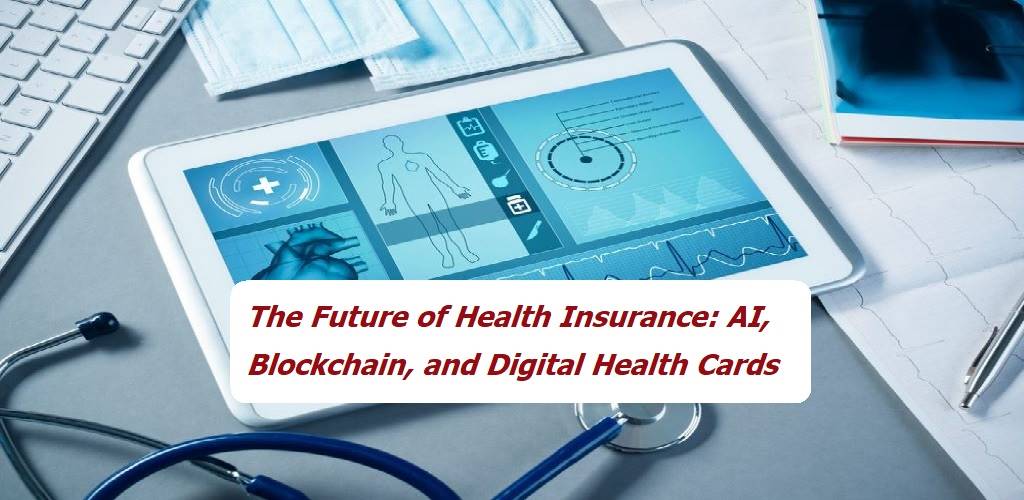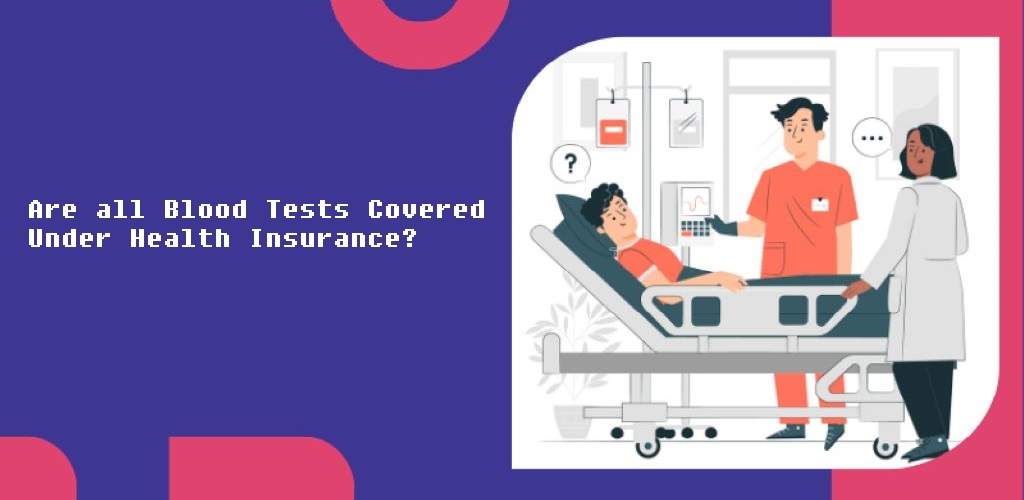The landscape of health insurance is evolving faster than ever, branching out into areas like mental health and rare diseases, no longer confined to traditional coverage. As life expectancy rises, the demand for comprehensive healthcare services grows, especially for an ageing population. To meet these demands, the industry is undergoing a revolutionary shift powered by cutting-edge technologies like Artificial Intelligence (AI), Blockchain, and Digital Health Cards.
While the traditional insurance model has been sturdy, it’s now being reshaped by ground-breaking innovations. These advances are redefining how insurers operate, offering customers highly personalized, flexible solutions that cater to their unique health needs. With technology leading the way, the future of health insurance is not just about protection—it’s about empowerment, efficiency, and a more connected healthcare experience.
Challenges in the Health Insurance Industry
Here is a list of the significant hurdles in the current health insurance sector.
Regulatory and Compliance Complexities:
The health insurance industry is subject to a wide array of regulations, both at the national and regional levels. For example, in India, insurers must comply with laws from the Insurance Regulatory and Development Authority of India (IRDAI) while also keeping up with new amendments that can dramatically shift the landscape. Beyond national regulations, global insurers have to deal with varying laws in different countries, which adds another layer of complexity. On top of these legal requirements, healthcare data is highly sensitive, so insurers must prioritize the protection of this information.
Rising Healthcare Costs:
One of the most significant issues insurers face is the skyrocketing cost of healthcare services and pharmaceuticals. As medical treatments advance, they often become more expensive, placing a financial strain on both insurers and patients. For insurers, finding a way to keep premiums affordable without compromising on coverage is a delicate balancing act. The high cost of prescription medications is another area of concern. Insurers are working to develop strategies to manage these rising costs while still ensuring that their customers have access to essential medications. This might involve negotiating better prices with pharmaceutical companies or developing tiered drug plans, but the challenge remains significant.
Keeping Pace with Technological Change:
The rapid advancement of technology presents both an opportunity and a challenge for health insurers. On one hand, integrating new digital tools can improve efficiency, enhance customer experience, and provide better health outcomes. On the other hand, adopting these technologies requires significant investment in new systems, training, and ensuring that different platforms work seamlessly together. Interoperability is key to creating a smooth experience for patients and providers alike, but achieving it can be costly and complex.
What are AI, Blockchain, & Digital Health Cards?
Let’s first start with AI in Health Insurance!
Artificial Intelligence (AI) in Healthcare AI is playing a significant role in healthcare by speeding up and improving the accuracy of medical tasks such as diagnosis, treatment planning, and patient care. By analyzing vast amounts of medical data, AI can predict or diagnose illnesses much faster than traditional methods, enabling quicker treatment and better patient outcomes. Essentially, AI collects data, processes it, and provides actionable insights to healthcare professionals, drastically reducing diagnosis and treatment errors.
Uses Cases of AI in Healthcare:
- AI in Enhancing Patient Experience
AI can significantly improve patient interactions by automating tasks such as appointment scheduling, sending health reminders, and offering personalized health tips. It also improves the accuracy of diagnoses and shortens the waiting time for patients, ensuring faster and more tailored care. By optimizing these routine processes, AI allows hospitals and clinics to treat more patients efficiently, enhancing overall care delivery.
- AI in Healthcare Data Management
Healthcare generates enormous amounts of data daily, but valuable insights can get buried in this ocean of information. AI helps connect and analyze these data points at a speed impossible for humans, enabling faster drug development, better preventive care, and more accurate diagnoses. AI also improves healthcare administration by reducing paperwork and speeding up processes, resulting in cost savings and smoother daily operations.
- AI in Robotic Surgery
AI-powered robots are now assisting surgeons in performing complex procedures, ranging from minimally invasive surgeries to major operations like open-heart surgery. These robots provide surgeons with a high-definition, magnified, 3D view of the surgical site, enhancing precision and reducing risks. Surgeons can control these robots from a console, which allows for highly precise movements, improving patient outcomes and reducing recovery time.
Blockchain in Healthcare
Blockchain technology offers a secure and efficient way to manage patient data across the healthcare system. It creates a decentralized, tamper-proof ledger that can be accessed by hospitals, diagnostic labs, pharmacies, and physicians, ensuring that patient information is both accurate and easily transferable. This is especially valuable in healthcare, where patients often move between different providers.
Use Cases of Blockchain in Healthcare:
- Medical Records Management
Patients often see multiple doctors throughout their lives, making it crucial for their medical records to be easily accessible and up-to-date across different healthcare providers. Blockchain ensures that these records can be securely updated and shared in real time, maintaining the accuracy of patient information while also protecting privacy.
- Expedited Credentialing
In healthcare, it is essential to verify the credentials of medical professionals to ensure patient safety. Blockchain speeds up this process by securely validating the qualifications and certifications of doctors, nurses, and other professionals, reducing the risk of fraud and errors, and ensuring that healthcare providers meet necessary standards.
- Real-Time Insurance Information
Blockchain helps insurance companies and healthcare providers access up-to-date, accurate information about a patient’s insurance coverage. By creating a single source of truth for all stakeholders, blockchain enables real-time updates on coverage, reducing delays in claims processing and preventing fraud through smart contracts that automatically enforce the terms of the agreement.
Digital Health Cards
Digital Health Cards are a key component of India’s National Digital Health Mission (NDHM) or Ayushman Bharat Digital Mission (ABDM). Launched in 2021, these cards provide a digital platform where citizens can securely store and access their health records. Each card is assigned a unique 14-digit identification number linked to the holder’s Aadhaar and mobile details.
Uses Cases of Digital Health Cards:
- Easy Access to Paperless Health Records
With a Digital Health Card, patients can access their medical records anytime, anywhere, without needing physical documents. This allows for quick retrieval of vital health information during emergencies or doctor visits.
- Linking Health Records in One Place
The Digital Health Card allows users to securely link all their health records—lab reports, prescriptions, medical history, etc.—in one place. This makes it easier to share these records with healthcare providers, reducing the need to repeatedly fill out medical history forms and minimizing the risk of lost information.
- Digital Access to Healthcare Services
Cardholders can use their Digital Health ID to access a range of healthcare services online. This includes consulting with verified doctors registered on the Ayushman Bharat platform or booking physical appointments through integrated health apps. This digital ecosystem enhances convenience and accessibility for patients, streamlining their healthcare journey.
How These New-Age Technologies Will Streamline the Health Insurance Industry?
Let’s take a look at how these three technologies may streamline the health insurance industry.
Value-based Healthcare:
AI, Blockchain, and Digital Health Cards are transforming the health insurance industry by supporting the shift towards value-based healthcare. In this model, the focus is on the quality of care provided rather than the volume of services. AI helps in analyzing patient data to predict outcomes, monitor treatments, and ensure that patients are receiving the most effective care. This reduces unnecessary procedures and hospital visits, which may help insurers save costs while improving patient outcomes.
Blockchain ensures the secure sharing of accurate medical records, making it easier for insurance companies to assess the quality of care provided, and Digital Health Cards allow patients to access and share their health information seamlessly with providers
Promotion of Preventive Care:
Preventive care is essential to reducing long-term healthcare costs, and AI plays a significant role in promoting it. AI algorithms can analyze patient data to identify early warning signs of diseases, enabling doctors and insurers to recommend preventive measures before a condition worsens. This not only helps patients avoid more serious health problems but also reduces insurance claims for costly treatments.
Blockchain further enhances this by securely storing patient data that can be easily accessed across healthcare providers, promoting a more coordinated approach to preventive care.
Digital Health Cards link medical histories and records, making it easier for individuals and insurers to keep track of screenings, vaccinations, and preventive health measures and ensuring timely action is taken.
Focus on a Wellness-Oriented Approach:
Traditionally, healthcare has focused on treating illness after it occurs, but AI, Blockchain, and Digital Health Cards are helping to shift the focus toward a wellness-oriented approach. AI can personalize health recommendations by analyzing an individual’s lifestyle, medical history, and genetic data, promoting wellness and preventing diseases.
Blockchain technology ensures that all relevant wellness data, from fitness to diet records, is securely shared across providers and insurers, supporting a more holistic view of a person’s health.
Digital Health Cards enable patients and healthcare providers to access comprehensive health data, making it easier to focus on maintaining overall well-being rather than simply treating illness.
Innovation and Emphasis in Primary Care:
AI, Blockchain, and Digital Health Cards are driving innovation in primary care by making it more accessible and efficient. AI helps primary care physicians by offering tools for faster diagnoses and personalized treatment plans, enhancing the quality of care at the first point of contact.
Blockchain ensures that patient records are updated in real time and securely shared with primary care providers, reducing administrative delays and errors.
On the other hand, digital health cards simplify the process for patients to share their medical histories, lab results, and prescriptions with their primary care doctors, making consultations smoother and more effective.
Conclusion
So, there you have it! The health insurance industry is on the brink of transformative change, driven by advancements in technology, evolving public perceptions, and shifts in legislation. While challenges like rising costs and regulatory hurdles remain, the opportunities for innovation are vast. Technologies such as AI, Blockchain, and Digital Health Cards offer a promising foundation to address these issues, which may enable insurers to create more efficient, personalized, and accessible solutions.
As these trends continue to reshape the industry, health insurance has the potential to evolve in ways that meet the needs of a rapidly changing world, which may offer new pathways to better care and coverage.








